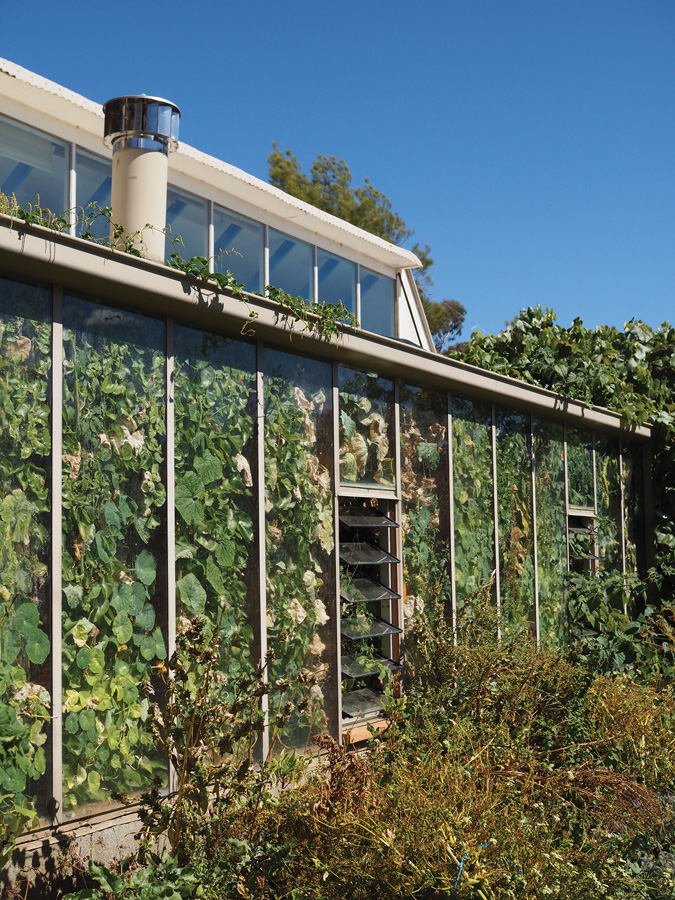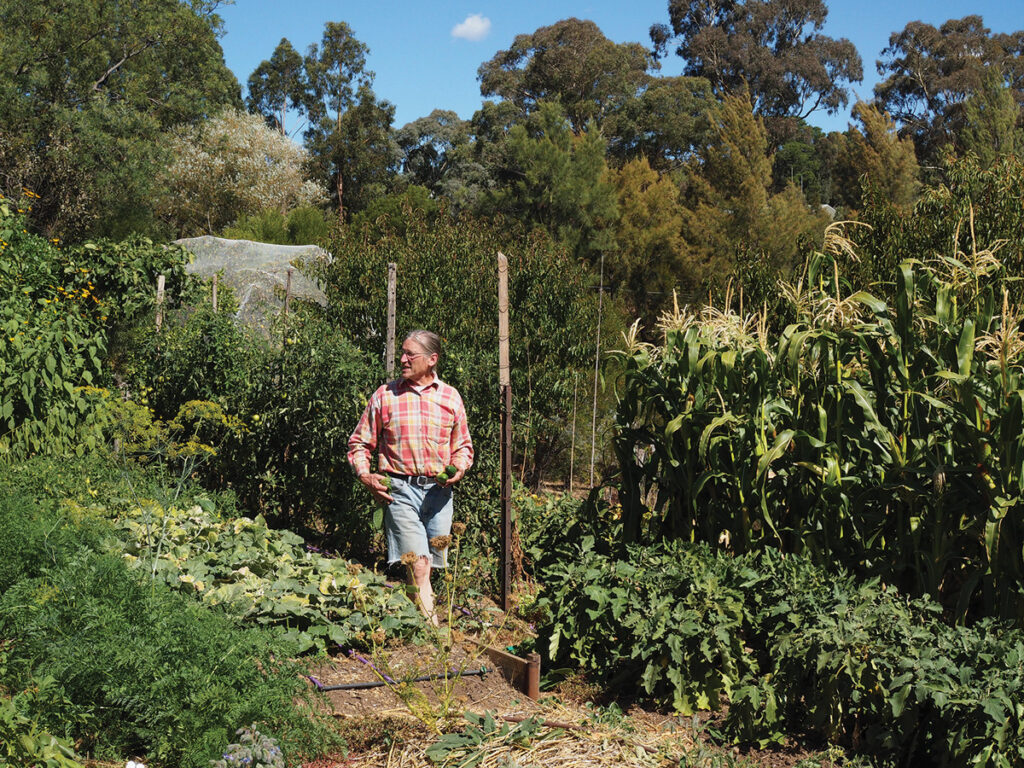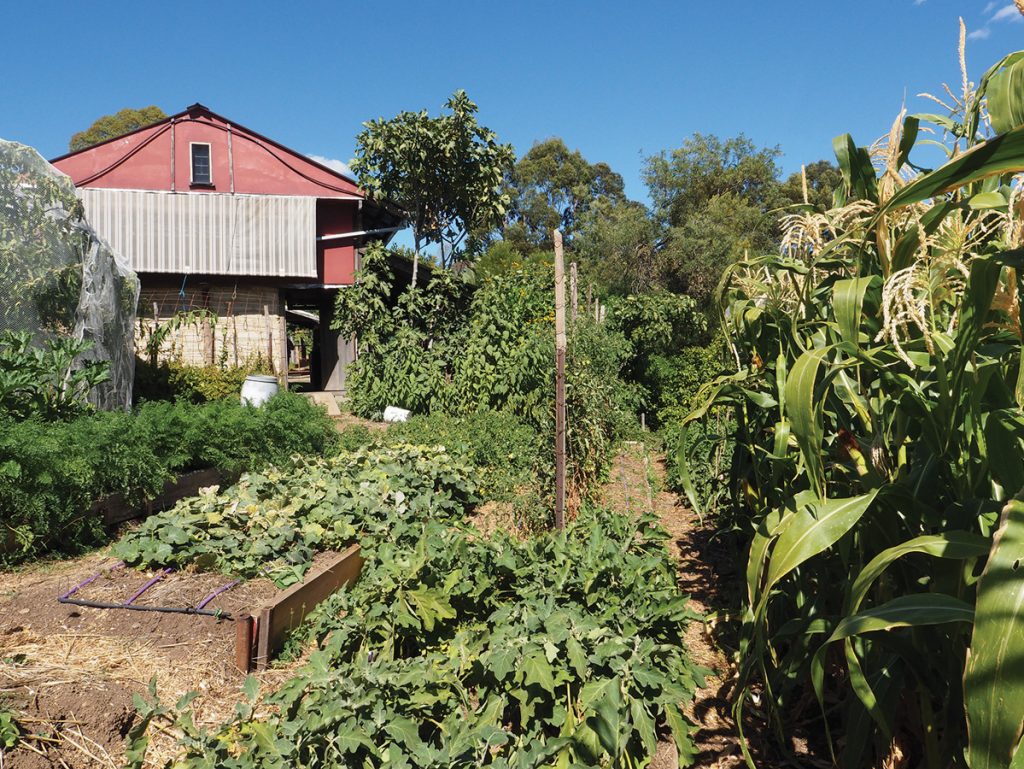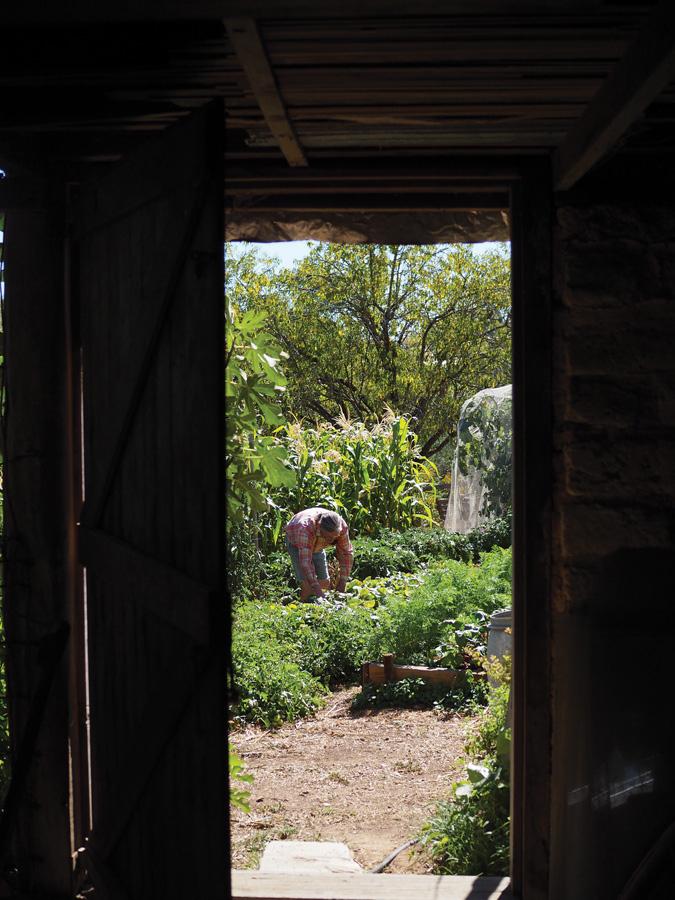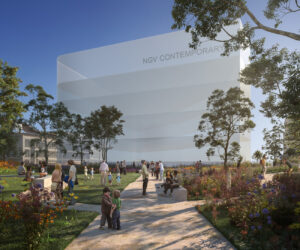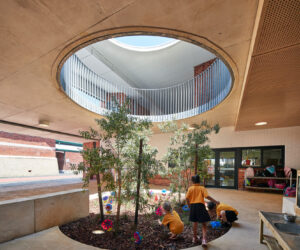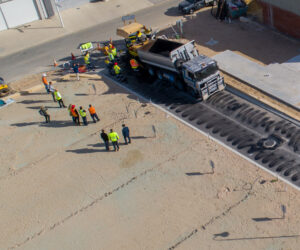Permaculture Propagator
David Holmgren shares his wisdom on the future of urban permaculture from his country Victorian farm.
David Holmgren is a passionate activist committed to shaking up the status quo. To his devoted followers – as witnessed at this year’s Sustainable Living Festival in Melbourne – he is the oracle from on high, the rockstar of permaculture. This consummate pedagogue is now fervently espousing his message of sustainable and regenerative living to the masses in Australian suburbia.
As co-originator with Bill Mollison of permaculture and its principles, David is equipped to guide those keen to embrace a change in city routines of work, commute and consume. With his recently released RetroSuburbia, David maps out a process to lead to a more fulfilling existence with less negative impact. The vision of RetroSuburbia is to take incremental steps to understand the connection between land, water and food. As David writes in his book, “The more people have dirt on their hands while talking to their neighbours, the greater the chance that a resilient future will be grounded in the abundance of nature and flexibility of human behaviour.”
David Holmgren was a post-graduate student under Bill Mollison at UTAS in the 1970s and went on to lecture and inspire over the next four decades. With his grasp of the big picture, it is his concise explanation of the grassroot effort that resonates. We caught up with David on his small farm within the township of Hepburn Springs in Victoria. Here he has created the model permaculture existence. But the inspiring element is that every city dweller can adopt aspects of David’s Melliodora farm.
Sitting around an outdoor table and savouring a delicious bunch of grapes from a vine on David’s pergola, we discuss the challenges facing urban populations. But there is a large-scale opportunity for us urbanites to shake up this norm by adopting some of the principles of permaculture. The book is partly a manifesto of how to retrofit the suburban home, to improve wellbeing at a personal level, to encourage others and have an overall beneficial impact. David observes the growing trend in interest and action at a level surpassing that embraced back in the 1970s
“Permaculture is saying: get connected back to the sources of subsistence – grow some food in the front yard,” David attests. From this publication’s perspective, we continually witness this through inner city renovations staying within a dwelling’s footprint whilst being able to create a food-producing garden. As David notes, “ … changing to producing more perishable food at home is actually one of the most powerful things that can be done.”
There are more impressive examples that David illustrates, such as a retrofit to a Northcote terrace house which has removed a poorly added extension to increase growing space. And he references Ecoburbia in Fremantle where, rather than demolishing a 1970s Italianate, it has been renovated to house five families, 12 chooks, two goats and an extensive herb and veggie garden. It is a principle that David embraces, of taking what already exists and improving its usage.
The book highlights strategies around location and local climate conditions for water harvesting, garden size and produce selection. Whilst it is focused more on cool Mediterranean climates, the principles of siting and situation for passive solar design, garden location, soil assessment and rainfall characteristics translate to sub-tropical or tropical situations. The key message David imparts is to break out of habits endemic from an early age of urban living.
Whether it is to begin commuting by bike or taking up car sharing, the huge impact of these simple changes on improving efficiency and reducing energy consumption is significantly more attainable than that of large-scale technological changes.
David does not expect a utopian world of selfsufficient quarter-acre urban farms. The economies of scale are just not there to enable families to live completely sustainably. Rather he possesses the view that “Permaculture is not just about bringing the benefits back, but bringing those problems back – and creating a better design that deals with them.” And as he summarises somewhat succinctly, “Own your own shit.”

